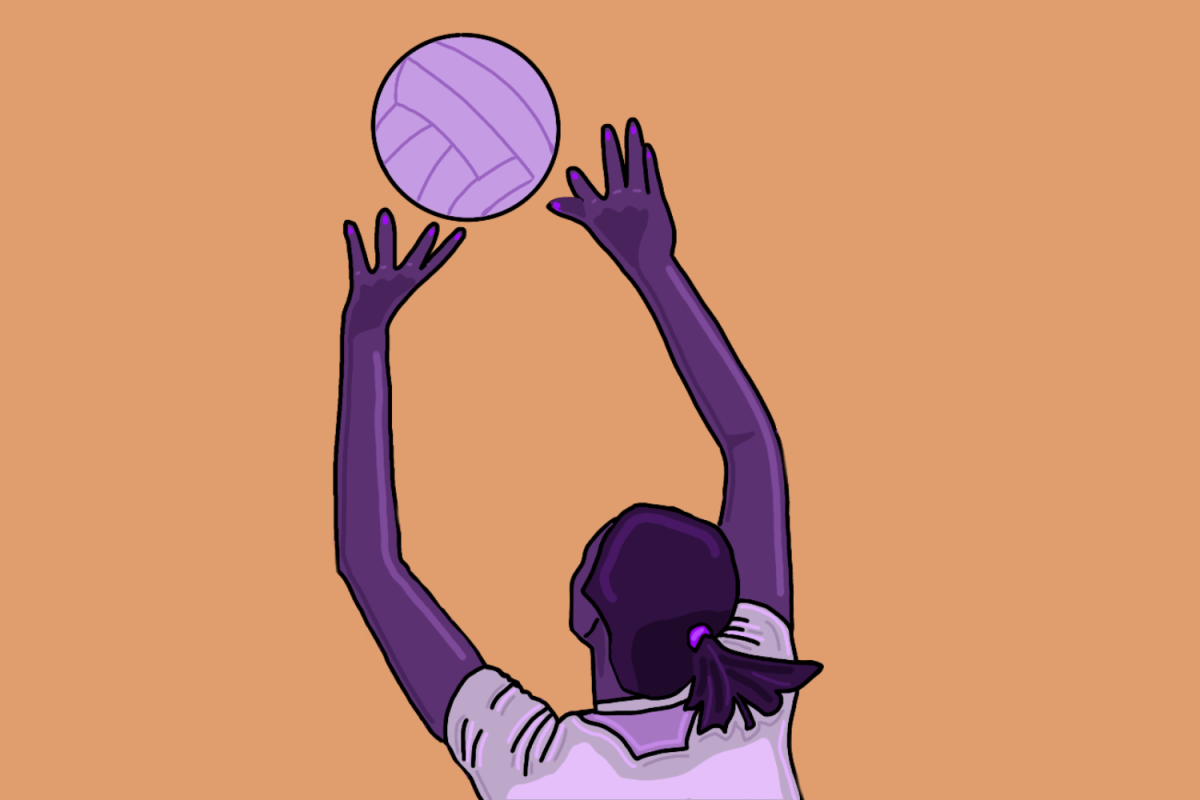If you’ve ever been to a volleyball game, you understand the confusion and frustration when a match gets interrupted over a small fault. As the referee holds up two fingers, the crowd boos and grunts in frustration: the player who touched the ball second, most often the setter, had a double contact.
On Feb. 20, the NCAA announced a new rule allowing double contacts — referring to when a player’s hands touch the ball at two different times consecutively, or when the ball hits their body twice. The premise of the rule change was to make the game more consistent and smooth for both players and fans.
The double contact call often comes up multiple times during games and is often subjective — players and coaches alike constantly argue with the referee over their call, which causes delays as the decision is reviewed. The NCAA collected data from a 2022 experimental rule that shows the rule change will only alter a small amount of calls.
The announcement has been met with mixed reactions. Although the rule change could lead to uninterrupted gameplay, the previous rule pushed setters to develop better form and set with a singular, brisk contact to make sure their hands did not tap the ball twice. Critics of the rule change argue that by allowing double contacts, the NCAA is blurring the distinction between a fantastic setter and a mediocre one.
First-year Alden Roberts, a setter on the NYU women’s volleyball team and a referee for recreational games at BigCity Volleyball, says the new rule will make officials’ jobs easier.
“It’s hard to call doubles because every ref calls them differently,” Roberts said. “It’s very much a spectrum of how bad the double was.”
She also said that it will allow setters to run cross-court to retrieve the ball without worrying if their set has a double-touch.
While this can give less-skilled setters more playtime, it seems unfair to the setters who have perfected their setting for their entire career. However, Roberts said that most teams will still want setters who do not double in order to have consistent sets.
The new rule also clearly states that if this double contact results in the ball going over the net instead of to a player on their own team, it will be considered a fault. This means that they would lose the point, and the other team would get the ball. Without this clarification, the setter would be able to set up the ball with one hand and hit it over the net with the other. This would be widely unfair to both hitters — as the setters would be hitting instead of them — and to blockers, who would need to train to be ready for a hit from multiple sides of the net.
Roberts said she will not be changing her setting technique and believes other setters won’t either. She doesn’t believe the new rule will affect the game in the coming season, but says it could have effects years down the line. Younger players could be taught different techniques, with less emphasis placed on a single-contact set.
The NCAA also announced a new rule pertaining to liberos, the defensive specialist on each team dressed in a differently colored jersey who plays in the back row. Until the rule change, teams were only allowed to designate one libero, but now they can designate two. Although this rule has implications for gameplay, it hasn’t caused much in-game or media tension — so the new changes to it aren’t as debated.
Women’s volleyball is set to return to action this coming fall, where the implications of the new rules will finally be realized.
Contact Alisia Houghtaling at [email protected].
















































































































































